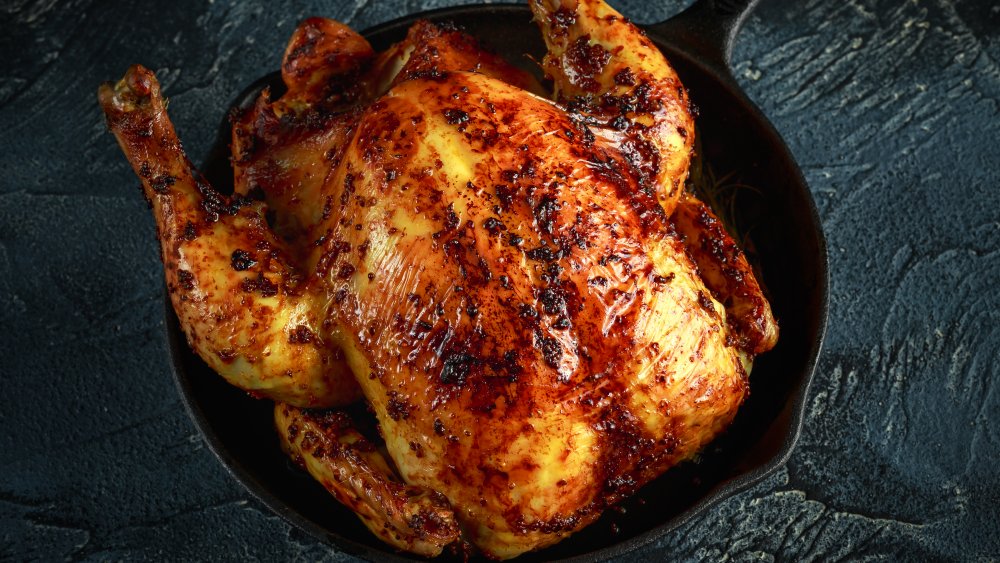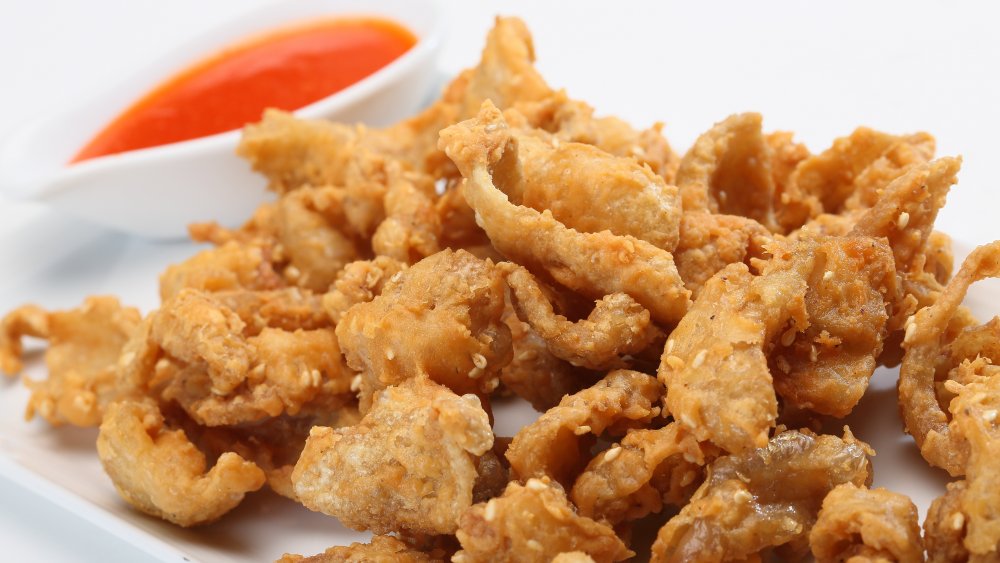The Real Reason You Should Leave Chicken Skin On
For years, doctors and nutritionists told us to love chicken, but they have also vilified chicken skin at the same time. The experts said that because the skin was so fatty, the best way to save our hearts was to strip the chicken of its skin before we started cooking, even if it meant that the bird we were meant to enjoy was that much dryer and potentially that much more unpalatable. But it was meant to be worth it, because chicken skin wasn't just fattening, it also jacked up our cholesterol and blood pressure levels, making it a contributor to heart disease (via Alberton Record).
Now health experts are doing an about-face and saying it's totally cool to enjoy chicken skin, because as Insider puts it, most chicken fat is the healthy, unsaturated kind that our hearts actually enjoy (along with our taste buds). Leaving chicken skin on while you're cooking even has the seal of approval from health experts at Harvard, who say keeping the skin on may turn out to be good for us because the skin keeps the chicken meat both moist and full of flavor — and that means we end up using less breading or potentially harmful seasoning as a result.
You can even go to town and have a bite (or more) of that crisp, once-forbidden (savory) fruit.
Why the all-clear doesn't mean you can indulge on chicken skin
But even if chicken skin has been given the all-clear, nutritionists say you really shouldn't go all out and indulge, especially since chicken fat may not be something your body will want to have too often and in large quantities. "A little bit [of skin] with a chicken-based meal occasionally is fine, but I would not go out of my way to eat a lot of chicken skin," clinical nutritionist Sheena Smith says (via SCMP). "Chicken meat, and in particular the skin of the chicken, has more omega-6 fatty acids than any other meat. Omega-6 is an unsaturated fat that increases inflammation in the body and is the driving force behind cardiovascular disease, type 2 diabetes, rheumatoid arthritis, asthma, and cancer, to name a few diseases."
So, keep the skin on while you're cooking your bird, but get into the habit of removing it most of the time when it's done, although occasionally you can enjoy it as a treat.

